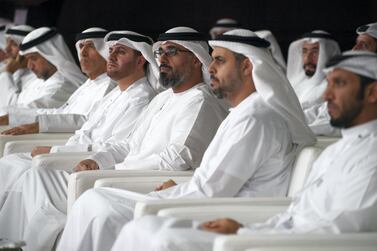Some of Abu Dhabi’s most isolated regions will be transformed into tourism hotspots in an effort to meet rising demand from eco-friendly visitors.
It is hoped that a package of tax waivers, marketing support and the promise of building transport infrastructure to connect remote attractions will tempt private firms and investors to commit to large eco-tourism projects.
Mirfa, located on the coast, around a 90 minute drive from Abu Dhabi city, has been identified as one location that is ripe for development, potentially becoming a major centre for snorkelling and bird watching. Plans for three or four star, affordable bungalow-style hotels, in a tourism zone, have been proposed.
Parts of the desert, Liwa, Alwathba, Alkhatim and Suwaihan, are seen as possible homes for attractions including new hotels, while it is hoped that private islands within two hours of Abu Dhabi city will become home to new “luxury eco-friendly resorts with water activities.”
The plan could even help the emirate become an “island hopping destination,” according to those behind the drive, by utilising the 215 privately-owned islands in Abu Dhabi.
Qasr Al Sarab in Liwa, recently voted the world’s most Instagram-friendly hotel, has been cited by economy bosses as an example of an existing successful development. Meanwhile, Jubail Island, near Saadiyat Island, is currently being developed to offer environmentally-friendly villages.
The move to identify eco-tourism as an area for new investment follows rising demand from tourists, with the UAE no longer seen only as a hub for luxury hotels, skyscrapers and shopping, tourism experts said.
“One of the most popular UAE tourism products - namely the ‘Desert Safari’ - can be considered as a sort of precursor to more elaborate ecotourism projects that the UAE has now identified, developed and promoted,” said Professor Amitabh Upadhya, a specialist in travel and tourism management at Skyline University College in Sharjah.
“They are conducted in a natural environment and gives glimpse of the Bedouin lifestyle with camels and desert villages - an ecotourism concept.
“The switch towards more local and nature conforming tourism is being successfully developed and luxury resorts like Al Maha [in Dubai] or Qasr Al Sarab offer a wonderful combination of luxury eco-tourism.
“Eco-tourism is the future because the concept goes beyond environmental aspects and encompasses community welfare as an essential tenet. It gives the industry an opportunity to contribute to sustainability in a profitable manner, which is a win-win situation.”
Applications for support through the scheme will be open in July and August, with assessments taking place in September.
Any projects must have a completion date prior to January 2022, when the Ghadan 21 investment initiative is due to end. It is envisaged that the offer of support will attract interest from private developers, hotel operators and individuals, both from companies already in the UAE looking to expand and international firms looking to enter the market.
The Abu Dhabi Investment Office is offering lease exemptions, tax waivers, administrative and marketing support and infrastructure investment, for example by building roads to new sites, to interested companies. There is no limit on the number of applications that can be granted.
Developers are expected to demonstrate that their projects will comply with environmental standards and have a low carbon footprint once built.






